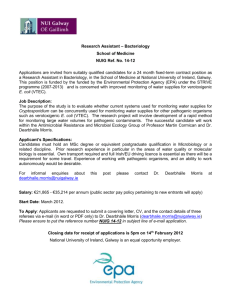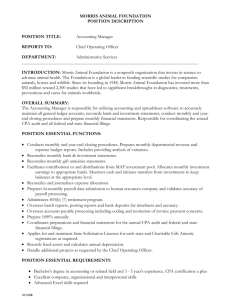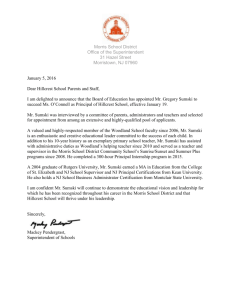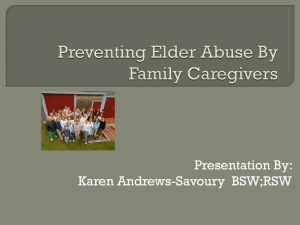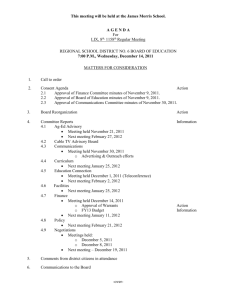the summary - Macmillan Cancer Support
advertisement
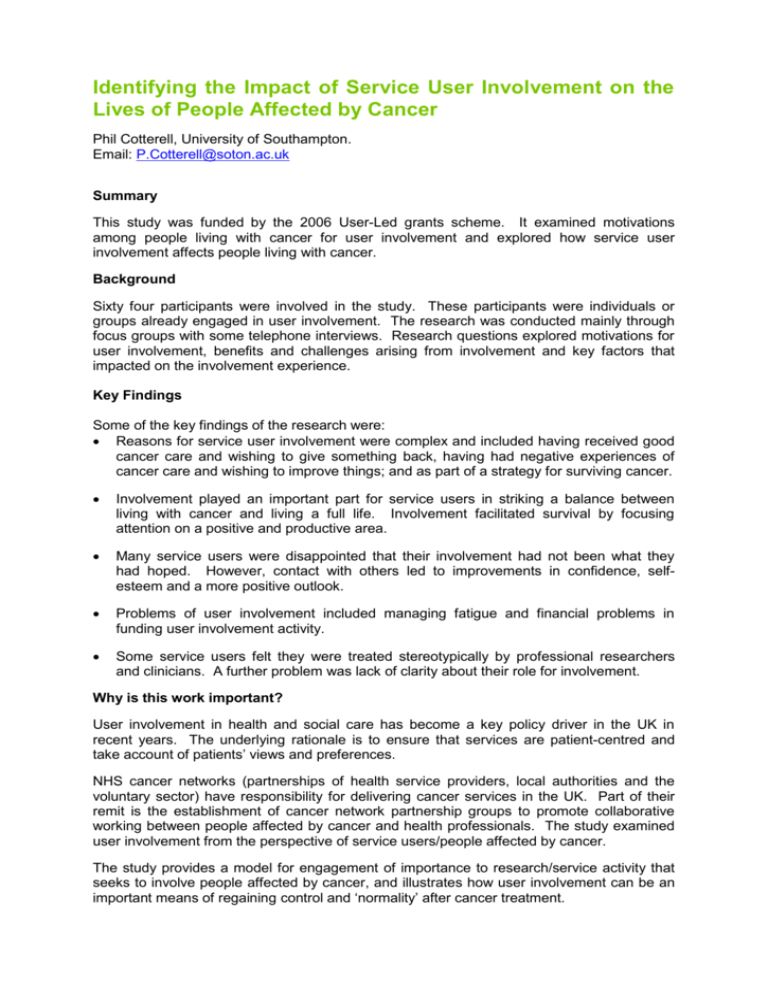
Identifying the Impact of Service User Involvement on the Lives of People Affected by Cancer Phil Cotterell, University of Southampton. Email: P.Cotterell@soton.ac.uk Summary This study was funded by the 2006 User-Led grants scheme. It examined motivations among people living with cancer for user involvement and explored how service user involvement affects people living with cancer. Background Sixty four participants were involved in the study. These participants were individuals or groups already engaged in user involvement. The research was conducted mainly through focus groups with some telephone interviews. Research questions explored motivations for user involvement, benefits and challenges arising from involvement and key factors that impacted on the involvement experience. Key Findings Some of the key findings of the research were: Reasons for service user involvement were complex and included having received good cancer care and wishing to give something back, having had negative experiences of cancer care and wishing to improve things; and as part of a strategy for surviving cancer. Involvement played an important part for service users in striking a balance between living with cancer and living a full life. Involvement facilitated survival by focusing attention on a positive and productive area. Many service users were disappointed that their involvement had not been what they had hoped. However, contact with others led to improvements in confidence, selfesteem and a more positive outlook. Problems of user involvement included managing fatigue and financial problems in funding user involvement activity. Some service users felt they were treated stereotypically by professional researchers and clinicians. A further problem was lack of clarity about their role for involvement. Why is this work important? User involvement in health and social care has become a key policy driver in the UK in recent years. The underlying rationale is to ensure that services are patient-centred and take account of patients’ views and preferences. NHS cancer networks (partnerships of health service providers, local authorities and the voluntary sector) have responsibility for delivering cancer services in the UK. Part of their remit is the establishment of cancer network partnership groups to promote collaborative working between people affected by cancer and health professionals. The study examined user involvement from the perspective of service users/people affected by cancer. The study provides a model for engagement of importance to research/service activity that seeks to involve people affected by cancer, and illustrates how user involvement can be an important means of regaining control and ‘normality’ after cancer treatment. Publications or other outputs related to this research Cotterell P, Harlow G, Morris C, Beresford P, Hanley B, Sargeant A, Sitzia J, Staley K. Service user involvement in cancer care: The impact on service users. Health Expectations. 2011. 14, (2). 159-169 DOI: 10.1111/j.1369-7625.2010.00627.x Cotterell P, Morris S, Harlow G, Morris C, Beresford P. Making Involvement Effective: Lessons from Cancer Care. (Dissemination booklet) 2009. London, UK: Macmillan Cancer Support Cotterell P, Morris C. The impact of involvement on service users. INVOLVE national conference. 2008. East Midlands Conference Centre.
